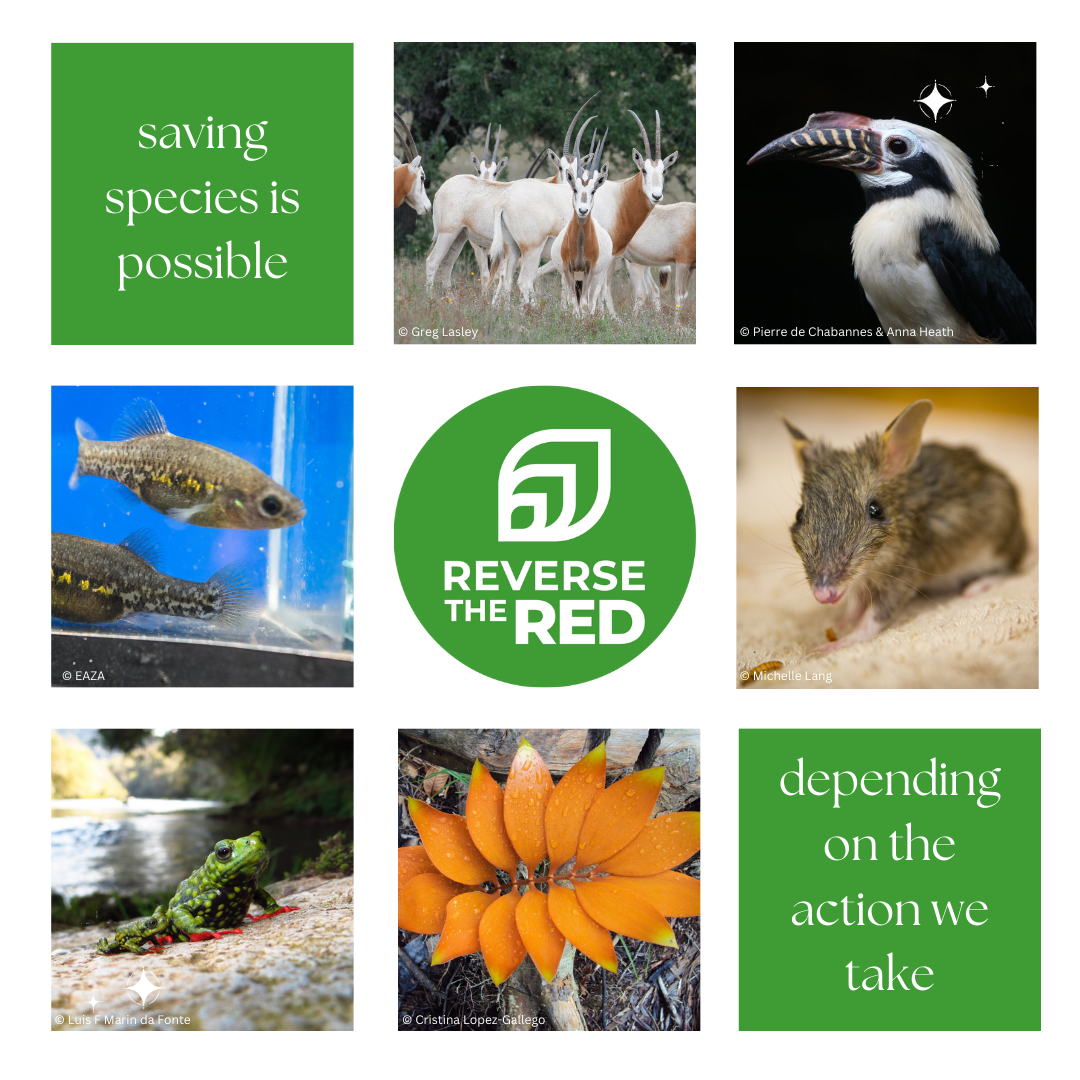BGCI Celebrates Reverse the Red Day
-
Region
Global -
Programme
BGCI -
Workstream
Saving Plants -
Topic
Plant Conservation -
Type
News -
Source
BGCI Partner
News Published: 07 February 2024
Partners, civil society organisations, zoos, aquariums, botanic gardens, and communities around the world are celebrating Reverse the Red Day today. Events will be taking place online and in person at a variety of locations to celebrate this landmark day for species conservation.
The goal of Reverse the Red is simple but ambitious: we need to stop pushing our environment to the brink and relegating more species into worse status on the IUCN Red List of Threatened Species. To upend species and ecosystem loss, we need systemic change, which is why Reverse the Red brings together a diverse coalition of partners to collaborate, scale up aspirations and impact, and engage people from all walks of life to take action for biodiversity.
Last December, in Montreal, Canada, nearly 200 governments adopted the Kunming-Montreal Global Biodiversity Framework (GBF) with four goals and 23 targets for 2030. We have already successfully moved over 200 species one or more steps away from extinction on the IUCN Red List. Partners like zoos, aquariums, botanic gardens, research institutions, scientific networks, governments, tribal and indigenous governments, and community members have a hand in reversing the red for these species. Contributions to breeding, husbandry, rescue and release, pathology, veterinary medicine, genetic management, education, fundraising, community engagement, and more are key to meeting targets and recovering species.
This year, Reverse the Red has launched a Species Pledge, which is collating organisational commitments from governments, zoos, aquariums, botanic gardens, and other organisations, to compile a database of strategic and impact-driven species efforts. The goal of the Species Pledge is to create a coordinated map of key actions aimed at species recovery, utilising defined impact indicators. This is a direct outcome of the World Species Congress, which will be held May 15, 2024 as a 24-hour, fully virtual event.
We hope that organisations around the world continue to support the critical work of saving species. Reversing declines and recovering biodiversity is possible. We need to accelerate and amplify successful strategies as we collaborate and together increase the collective impact for species.
World Species Congress – May 15, 2024
Registration for the World Species Congress Opens on February 7.
Thanks to our generous sponsors, registration for the World Species Congress is free for everyone who wants to participate. You’ll have access to:
- the 24-hour live stream
- live chat discussions with presenters post-presentation
- downloadable resources, tools, and strategy frameworks
- next steps in training and collaboration, taking your conservation work to the next level.

About Reverse the Red
Reverse the Red is a global coalition supported and led by an executive committee: Botanic Gardens Conservation International, HHMI Tangled Bank Studios, IUCN Species Survival Commission, Re:wild, and the World Association of Zoos and Aquariums that ignited strategic cooperation and action to ensure the survival of wild species and ecosystems and reverse the negative trend of biodiversity loss. Through a strategic initiative, Reverse the Red brings together a diverse coalition of leading scientists, advocates, and partners committed to using a data-driven and science-based approach to assess, plan, and act for species conservation. Reverse the Red provides the tools and expertise to empower governments, partners and local communities to set and reach species conservation targets and celebrates and amplifies successful achievements for species.
For more information, contact: Megan Joyce – megan.joyce@reversethered.org
Become a Member
Be part of the largest network of botanic gardens and plant conservation experts in the world by joining BGCI today!
Support BGCI
You can support our plant conservation efforts by sponsoring membership for small botanic gardens, contributing to the Global Botanic Garden Fund, and more!